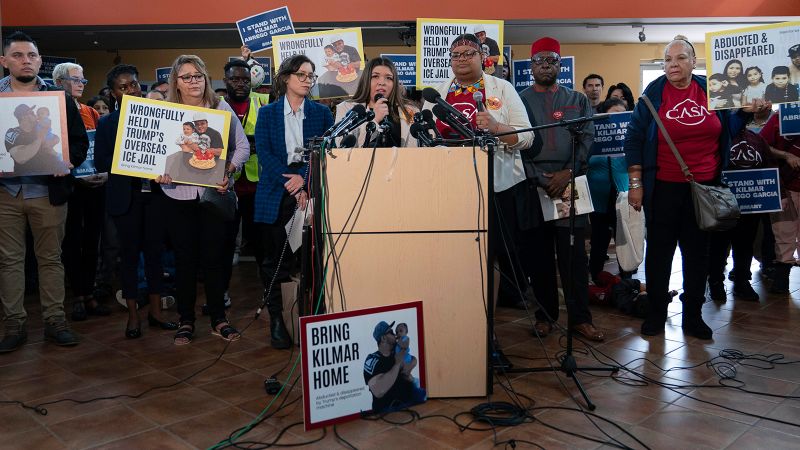
Trump administration insists it isn’t required to work with El Salvador to bring back man mistakenly deported
CNN
The Trump administration insisted on Sunday that it is not required to work with officials in El Salvador to secure the return of a man mistakenly deported to the country, days after the Supreme Court endorsed a federal judge’s directive that US officials must “facilitate” bringing him back stateside.
The Trump administration insisted Sunday that it is not required to work with officials in El Salvador to secure the return of a man mistakenly deported to the country, days after the Supreme Court endorsed a federal judge’s directive that US officials must “facilitate” bringing him back stateside. The argument has the potential of setting up another high-profile showdown between the administration and the federal judiciary over how much power courts have in resolving disputes concerning immigration, particularly ones involving foreign governments. The assertion, made in court papers by Justice Department lawyers, comes after US District Judge Paula Xinis on Friday ordered the administration to “take all available steps to facilitate” the return of Kilmar Armando Abrego Garcia, who was mistakenly deported to El Salvador’s notorious mega-prison last month. “The federal courts have no authority to direct the Executive Branch to conduct foreign relations in a particular way, or engage with a foreign sovereign in a given manner,” the DOJ attorneys wrote in the seven-page filing, arguing officials have a duty only to “remove any domestic obstacles” that may stand in the way of Abrego Garcia returning to the US. An earlier — yet similar — order from Xinis was appealed by the government up to the Supreme Court, which ultimately backed the judge’s order Thursday. The high court, however, did not give the administration a deadline for when Abrego Garcia should be returned, saying instead that the district judge’s directive was unclear and needed clarification. The Supreme Court noted the clarification needed to be made with “due regard for the deference owed to the Executive Branch in the conduct of foreign affairs.”

White House Border czar Tom Homan will address the press in Minneapolis after being sent to take the reins on the Trump administration’s immigration crackdown in Minnesota. President Donald Trump dispatched Homan following the fatal shooting of two US citizens in Minneapolis. Follow for live updates












